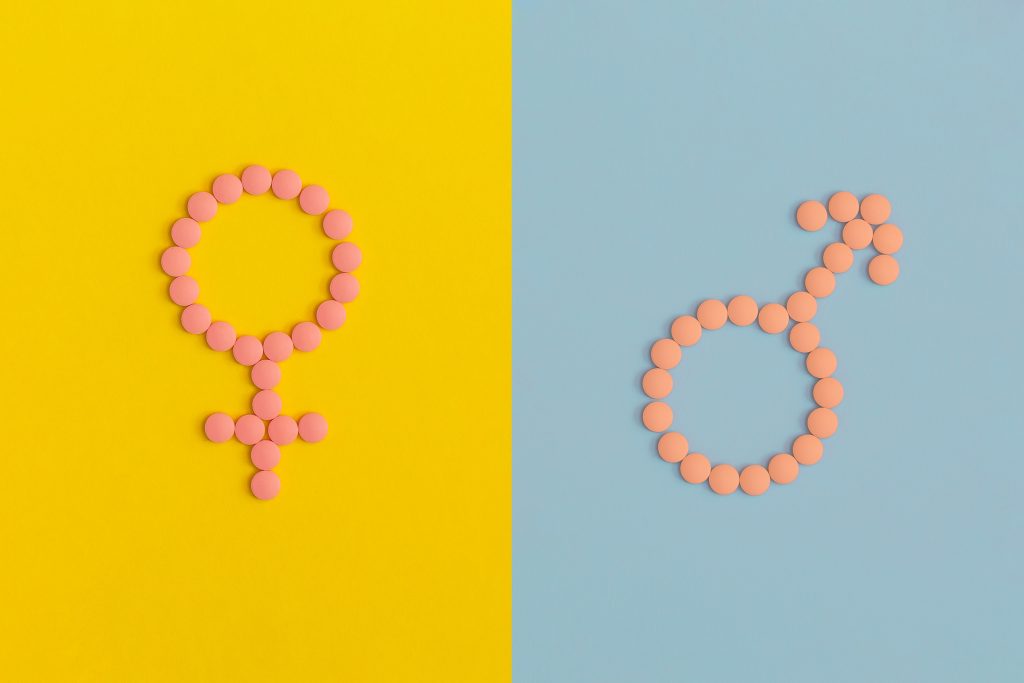
Modern men face a unique mix of physical, emotional, and environmental challenges. Long working hours, stress, lack of sleep, and processed diets all impact one critical but often overlooked factor, hormonal balance. Let’s start with understanding how hormonal health in men works for their vitality.
Hormones influence everything from energy and strength to mood, focus, and sexual health. Understanding how hormones function — and how to naturally maintain them, is the first step toward lasting vitality and wellbeing.
What Are Hormones and Why Do They Matter for Men?
Hormones are chemical messengers that regulate vital body functions. In men, the primary hormones include testosterone, DHEA, growth hormone, cortisol, and thyroid hormones. Each plays a key role in performance, metabolism, and mental sharpness.
- Testosterone – Drives muscle growth, libido, confidence, and motivation.
- DHEA – A precursor hormone that supports testosterone production and stress control.
- Cortisol – Known as the “stress hormone”; helps in short-term focus but harmful when chronically elevated.
- Thyroid hormones – Control metabolism, weight, and energy output.
When these hormones fall out of balance, men can experience fatigue, mood swings, loss of focus, decreased libido, and premature aging.
Signs of Hormonal Imbalance in Men
Hormonal decline is a natural part of aging, but lifestyle factors can accelerate it. Here are common warning signs:
- Persistent tiredness despite rest
- Low motivation and irritability
- Decreased muscle strength
- Increased belly fat
- Loss of sexual drive or performance
- Trouble sleeping
- Brain fog or difficulty concentrating
If several of these symptoms sound familiar, it may indicate hormonal disruption, but the good news is, it can often be corrected naturally.
Common Causes of Hormonal Decline
- Chronic Stress: Long-term stress raises cortisol levels, which suppresses testosterone production.
- Poor Diet: Excess sugar, alcohol, and processed foods interfere with hormone synthesis.
- Lack of Sleep: Testosterone levels can drop by 10–15% after just one week of sleep deprivation.
- Sedentary Lifestyle: Physical inactivity reduces circulation and lowers hormone signaling efficiency.
- Exposure to Toxins: Everyday chemicals in plastics and pesticides mimic estrogen, disturbing the male endocrine system.
How to Support Hormonal Balance Naturally
You don’t always need synthetic testosterone or harsh treatments. Natural adjustments can significantly improve hormonal health.
1. Prioritize Nutrition
A diet rich in protein, healthy fats, zinc, and magnesium supports testosterone synthesis.
Include: eggs, salmon, avocados, nuts, seeds, leafy greens, and whole grains.
2. Get Consistent Exercise
Strength training and high-intensity interval workouts (HIIT) naturally increase testosterone and growth hormone.
3. Manage Stress
Practices like deep breathing, meditation, or simply spending time outdoors help lower cortisol levels.
4. Improve Sleep Hygiene
Aim for 7–8 hours of deep, consistent sleep — most testosterone production occurs during the night.
5. Consider Herbal Support
Certain herbs and natural compounds can enhance hormone balance safely.
In Part 2 of this series, we’ll explore how Pueraria mirifica, a traditional Thai herb, supports men’s hormonal and overall health naturally.
Hormonal balance is the foundation of men’s vitality. By understanding how your hormones work and taking daily steps to protect them, you can reclaim your energy, confidence, and focus — naturally and safely.
Explore our website for the upcoming contents: Click Here
